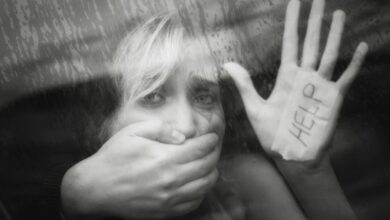How To Cope With HIV And AIDS

An Overview
Acquired Immune Deficiency Syndrome (AIDS) is caused by the Human Immunodeficiency Virus (HIV). The virus attacks and eventually destroys certain white blood cells, which are a part of the body’s immune system that we need to fight off infections.
The immune system makes antibodies to combat the HIV virus. Their presence in the blood can be measured. If a person has antibodies, they are called “HIV positive” because they have been infected with the HIV virus. However, the person may remain healthy for a long time, even many years. AIDS is the late stage of the illness known as HIV disease, and occurs when so many white blood cells have been destroyed that the immune system cannot do its job well. The person with AIDS develops infections, even from unusual organisms (opportunistic infections) and various malignancies. HIV virus also can affect the brain and nerves.
There are medications to control the infections and malignancies. There are also medications to slow the growth of HIV. However, right now there is no cure and no vaccination to prevent infection. The disease is fatal. However, many new treatments are being developed and there is hope that medical research will rapidly find better forms of treatment and prevention.
HIV is spread through the transmission of contaminated body fluids such as semen, vaginal secretions and blood into the body of another person. The entry occurs through broken skin and mucous membranes (tissues that line the mouth, vagina, rectum, and urethra). Any activity where one partner either heterosexual or homosexual penetrates another sexually can spread the illness. Any cutting into the body with contaminated instruments can cause infection; this includes needles used by IV drug abusers, unsterilized medical and dental equipment, as well as ear piercing, tattooing, and manicure equipment.
Take precautions. Always ask if equipment used in medical, dental or cosmetic procedures is sterilized, new, or disposable. Always practice safe sex. The virus is not spread by casual contact, such as hugging, holding hands, close conversation, sharing a meal, etc.
Don’t assume AIDS can’t happen to you or your loved ones. It can. The only absolute treatment is prevention. We must try hard not to stigmatize and isolate those who are infected with HIV or have developed AIDS. If you have questions about what is safe, consult your doctor.
If I’m HIV positive, should I tell other people?
It is important to tell those whom you may have exposed through sexual contact, needle sharing or other risky behavior. They need to be tested and have the knowledge that allows them to seek medical care. This can be very difficult to do and counseling can help.
You will profit from a network of helpful and supportive people. However, you do need to be careful about whom you tell. Some people have very strong reactions. Telling your boss and coworkers can have financial and legal ramifications. It is best to start with a few friends or family with whom you feel close and whom you can trust not to tell others.
Developing a community of support is a process and takes time. There may be HIV-positive support groups in your area or HIV hotlines that provide education and helpful support.
How one feels when they found out their status?
It is normal to have strong reactions such as fear, anger, and a sense of being overwhelmed. Some people even have suicidal thoughts. It is understandable that you might feel helpless and fear illness, disability and death. Other reactions might include:
Denial
People who find out that they are HIV positive often deal with the news by denying that it is true. You may believe that the HIV test was not accurate or that there was a mix-up with the result, even after confirmatory testing shows that it is a true positive. This is a natural and normal first reaction.
At first, this denial may even be helpful, because it can give you time to get used to the idea of infection. However, if not dealt with, denial can be dangerous; you may fail to take certain precautions or reach out for the necessary help and medical support.
It is important that you talk out your feelings with your doctor, a therapist, or someone you trust. It is important to do this so that you can begin to receive the care and support you need.
Anger
Anger is another common and natural feeling related to being diagnosed with HIV. Many people are upset about how they got the virus or angry that they didn’t know they had the virus.
Ways to deal with feelings of anger include the following:
• Talk about your feelings with others, such as people in a support group, or with a counselor, friend, or social worker.
• Try to get some exercise–like gardening, walking, or dancing–to relieve some of the tension and angry feelings you may be experiencing.
• Avoid situations–involving certain people, places, and events–that cause you to feel angry or stressed out. Using drugs or alcohol when you feel angry can be dangerous for you and lead to conflict or violence that might otherwise have been avoidable.
Sadness or depression
It is also normal to feel sad when you learn you have HIV. If, over time, you find that the sadness doesn’t go away or is getting worse, talk with your doctor or someone else you trust. You may be depressed.
Symptoms of depression can include the following, especially if they last for more than 2 weeks:
• Feeling sad, anxious, irritable, or hopeless
• Gaining or losing weight
• Sleeping more or less than usual
• Moving slower than usual or finding it hard to sit still
• Losing interest in the things you usually enjoy
• Feeling tired all the time
• Feeling worthless or guilty
• Having a hard time concentrating
• Thinking about death or giving up
• Persistent loss of libido or interest in sex
To deal with these symptoms, you may want to:
• Talk with your doctor about treatments for depression, such as therapy or medicines
• Get involved with a support group
• Spend time with supportive people, such as family members and friends
If your mood swings or depression get very severe, or if you ever think about suicide, call your doctor right away. Your doctor can help you.
Finding the right treatment for depression takes time; so does recovery. If you think you may be depressed, don’t lose hope. Instead, talk to your health care provider and seek help for depression.
Fear and anxiety
Fear and anxiety may be caused by not knowing what to expect after you’ve been diagnosed with HIV, or by not knowing how others will treat you if they find out you have HIV. You also may be afraid of telling people–friends, family members, and others–that you are HIV positive.
Fear can make your heart beat faster or make it hard for you to sleep. Anxiety also can make you feel nervous or agitated. Fear and anxiety might make you sweat, feel dizzy, or feel short of breath.
Ways to control your feelings of fear and anxiety include the following:
• Learn as much as you can about HIV. HIV infection is now a very treatable disease and most HIV-infected people can live long, healthy lives if they seek medical care and take good care of themselves. Current HIV medications can be very well tolerated and in general do not lead to the body changes that were seen with older treatments.
• Have your questions answered by your doctor.
• Talk with your friends, family members, and health care providers.
• Join a support group.
• Help others who are in the same situation, such as by volunteering at an HIV service organization. This may empower you and lessen your feelings of fear.
• Talk to your doctor about medicines for anxiety if the feelings don’t lessen with time or if they get worse.
Stress
If you are HIV infected, you and your loved ones constantly have to deal with stress. Stress is unique and personal to each of us. When stress does occur, it is important to recognize the fact and deal with it. Some ways to handle stress are discussed below. As you gain more understanding about how stress affects you, you will come up with your own ideas for coping with stress.
• Try physical activity. When you are nervous, angry, or upset, try exercise or some other kind of physical activity. Walking, yoga, and gardening are just some of the activities you might try to release your tension.
• Take care of yourself. Be sure you get enough rest and eat well. If you are irritable from lack of sleep or if you are not eating right, you will have less energy to deal with stressful situations. If stress keeps you from sleeping, you should ask your doctor for help.
• Talk about it. It helps to talk to someone about your concerns and worries. You can talk to a friend, family member, counselor, or health care provider.
• Let it out. A good cry can bring relief to your anxiety, and it might even prevent a headache or other physical problem. Taking some deep breaths also releases tension.
AIDS dementia
HIV/AIDS and some medications for treating HIV may affect your brain. When HIV itself infects the brain, it can cause a condition known as AIDS Dementia Complex (ADC). Symptoms can include the following:
• Forgetfulness
• Confusion
• Difficulty paying attention
• Slurred speech
• Sudden shifts in mood or behavior
• Muscle weakness
• Clumsiness
If you think you may have ADC:
• Don’t be afraid to tell your doctor that you think something is wrong. These symptoms can be subtle in the beginning, and telling your care providers about your concerns can help them to diagnose and treat you early.
• Keep a notepad with you and write down details about your symptoms whenever they occur. This information can help your doctor to help you.
• Build as much support as possible, including friends, family, and health care providers. Although it’s possible to treat ADC successfully, it may take a while for some symptoms to go away.
Coping tips
It is completely normal to have an emotional reaction upon learning that you are infected with HIV, such as anxiety, anger, or depression. These feelings do not last forever. As noted above, there are many things that you can do to help take care of your emotional needs. Here are just a few ideas:
• Talk about your feelings with your doctor, friends, family members, or other supportive people.
• Try to find activities that relieve your stress, such as exercise or hobbies.
• Try to get enough sleep each night to help you feel rested.
• Learn relaxation methods such as meditation, yoga, or deep breathing.
• Limit the amount of caffeine, nicotine, alcohol, and recreational drugs you use.
• Eat small, healthy meals throughout the day.
• Join a support group.
There are many kinds of support groups that provide a place where you can talk about your feelings, help others, and get the latest information about HIV/AIDS. Check with your health care provider for a listing of local support groups.
More specific ways to care for your emotional well-being include various forms of therapy and medication. Used alone or in combination, these may be helpful in dealing with the feelings you are experiencing. Therapy can help you better express your feelings and find ways to cope with your emotions. Medicines that may be able to help with anxiety and depression are also available.
You should always talk with your doctor about your options. There are many ways to care for your emotional health, but treatments must be carefully chosen by your physician based on your specific circumstances and needs.
The most important thing to remember is that you are not alone; there are support systems in place to help you, including doctors, psychiatrists, family members, friends, support groups, and other services.
How can a psychiatrist help me?
A psychiatrist will talk with you and take a history in which he or she will ask about your current problems and how you managed in the past. He or she will need to know about any past or present alcohol or drug abuse and whether there is any family history of emotional problems or substance abuse.
The psychiatrist, who is a medical doctor, will need to speak with your other physicians and review your medical history. The psychiatrist will ask specific questions to test memory, attention, and other aspects of thinking and problem solving. Your psychiatrist will tell you and your physician what he or she thinks is the nature of your problem, and will make recommendations for treatment. With your agreement, he or she may provide the recommended treatment if the expertise of a psychiatrist is required.
What treatments are available?
Various forms of psychotherapy may be useful, alone or in combination with medications which can help people with HIV disease express and understand their emotional reactions and find better ways to cope.
Some problems can be treated with medications. There are anti-anxiety medications and antidepressants, including psycho-stimulants that are safe and effective for use in people with HIV disease. People with Mania may need a mood stabilizing medication and those with psychotic symptoms may need an anti-psychotic medication.
There is substance abuse counseling for those with alcohol or drug abuse problems. In some areas of the country, there may be support groups or AA groups for people who have both HIV and substance abuse problems.
If you are HIV positive, are there things you can do to help yourself?
It is important that you see your doctor regularly, and that you follow his or her recommendations. You can help by making some lifestyle adjustments. It is important to maintain good nutrition and to get enough rest. If you smoke, try to stop. It is helpful to stop or reduce alcohol use. It is very important to develop social contacts and to enlist the support and help of friends and family.
If you feel that you are alone, it is important to recognize that help and companionship are available. A local community group or hotline that specializes in helping those with HIV disease and AIDS can be a good place to start.





